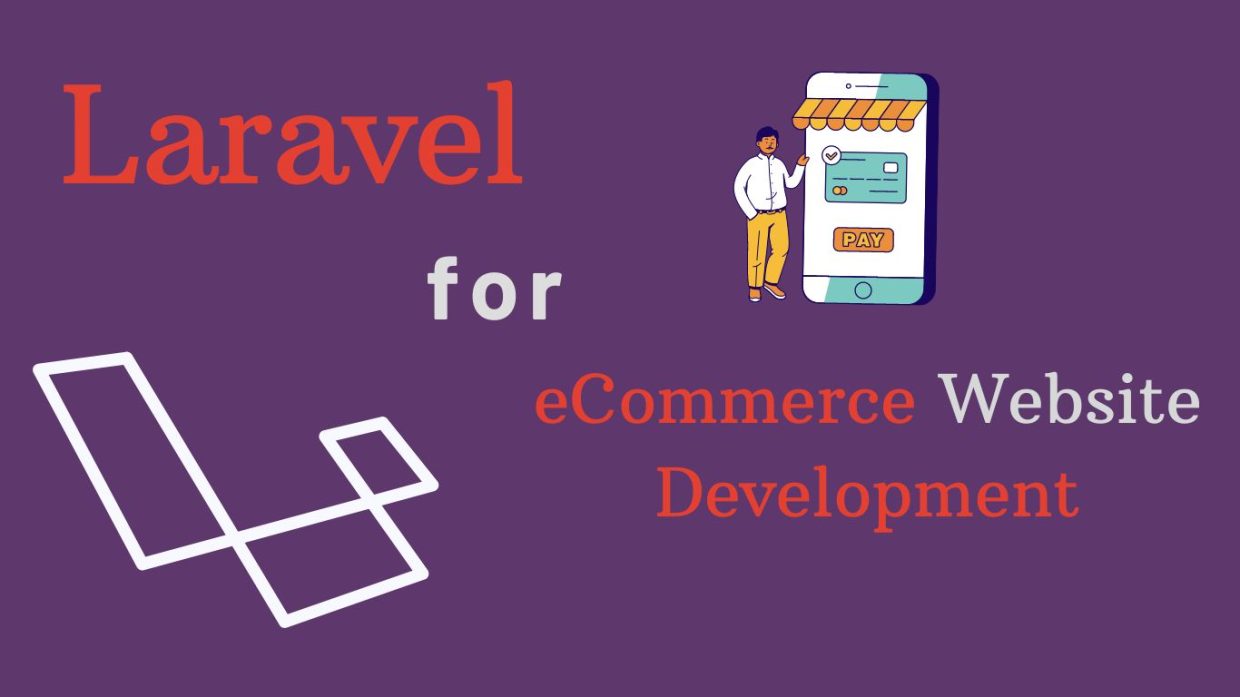
Yes, Laravel Development is a reliable choice for eCommerce Website. Laravel is a popular PHP web framework known for its ease of use, scalability, and security features, making it well-suited for building complex eCommerce applications. Laravel’s built-in features, such as authentication, routing, and database management, can save time and streamline the development process. Additionally, Laravel Development has a large and active community that provides a wealth of resources and plugins, making it easier to add functionality to your eCommerce website.
Moreover, Laravel supports multiple payment gateways, which is essential for any eCommerce website. Laravel has also implemented features that help in the development of APIs for mobile apps and integrations with third-party applications.
Overall, Laravel provides a solid foundation for building reliable and scalable eCommerce websites, and many businesses have successfully used it to create their online stores.
Look at Some of Reasons Why Laravel is a Reliable Choice for eCommerce Website Development:
Security:
Laravel has a range of built-in security features, including protection against SQL injection, cross-site scripting, and cross-site request forgery. The framework also provides an authentication system that can be easily customized to meet the specific security requirements of an eCommerce website.
- Easy to use: Laravel has a straightforward syntax and an intuitive structure that makes it easy to learn and use. This can save time and effort during development, allowing developers to focus on creating the features and functionality that the eCommerce website needs.
- Database management: Laravel includes a powerful ORM (Object-Relational Mapping) system that simplifies database management. This can make it easier to work with the data that an eCommerce website needs to function, such as product listings, customer information, and order details.
- Payment gateway support: Laravel supports multiple payment gateways, including Stripe, PayPal, and Braintree. This allows businesses to choose the payment processing solution that best fits their needs.
- Active community: Laravel has a large and active community of developers who contribute to the framework’s development and provide resources such as documentation, tutorials, and plugins. This can help eCommerce website developers to quickly find solutions to common problems and access a wide range of tools and resources to help build their website.
Overall, Laravel’s combination of security, ease of use, database management, payment gateway support, and active community make it a reliable and popular choice for eCommerce website development.
Why Laravel is a Good Choice for Building eCommerce Websites?
MVC architecture: Laravel follows the Model-View-Controller (MVC) architecture, which separates the application’s data, user interface, and control logic. This allows developers to create clean, maintainable, and scalable code, which is essential for building complex eCommerce websites.
- Blade templating engine: Laravel’s Blade templating engine provides an easy-to-use and intuitive syntax for creating reusable templates. This allows developers to create a consistent look and feel across an eCommerce website and make changes quickly and easily.
- Artisan command-line interface: Laravel’s Artisan command-line interface provides a range of helpful tools for developers, including database migrations, job scheduling, and code generation. This can save time and effort during development and streamline the process of building an eCommerce website.
- Testing: Laravel provides a comprehensive testing framework that makes it easy to write and run tests to ensure that an eCommerce website is working as intended. This can help to catch bugs and other issues early in the development process and ensure that the website is stable and reliable.
- Package ecosystem: Laravel has a rich ecosystem of packages and extensions that can be used to extend the functionality of an eCommerce website. These packages can provide everything from additional authentication methods to integrations with popular payment gateways.
In summary, Laravel’s MVC architecture, Blade templating engine, Artisan command-line interface, testing framework, and package ecosystem make it a robust and reliable framework for building eCommerce websites.
How to Hire Laravel Developer?
Here are some steps you can follow to hire a Laravel developer:
Define your requirements: Before you start looking for a Laravel developer, it’s important to define your requirements and what you want your eCommerce website to accomplish. This can help you to identify the specific skills and experience that you need in a developer.
- Create a job description: Based on your requirements, create a job description that clearly outlines the skills, experience, and responsibilities of the Laravel developer you’re looking for. You can post the job description on job boards, social media, and other relevant websites.
- Screen resumes and portfolios: Once you start receiving resumes and portfolios, review them carefully to identify candidates who meet your requirements. Look for candidates who have experience building eCommerce websites with Laravel and who can provide examples of their work.
- Conduct interviews: After you’ve identified a pool of potential candidates, conduct interviews to learn more about their skills, experience, and working style. Ask questions about their experience with Laravel, eCommerce website development, and their approach to problem-solving.
- Check references: Before making a hiring decision, check the references of the candidates you’re considering. This can help you to get a better sense of their work ethic, reliability, and performance on previous projects.
- Make an offer: Once you’ve identified the right candidate, make an offer that includes details about the job responsibilities, salary, benefits, and any other relevant details.
By following these steps, you can Hire Laravel Developer who has the skills and experience needed to build a reliable and effective eCommerce website.
